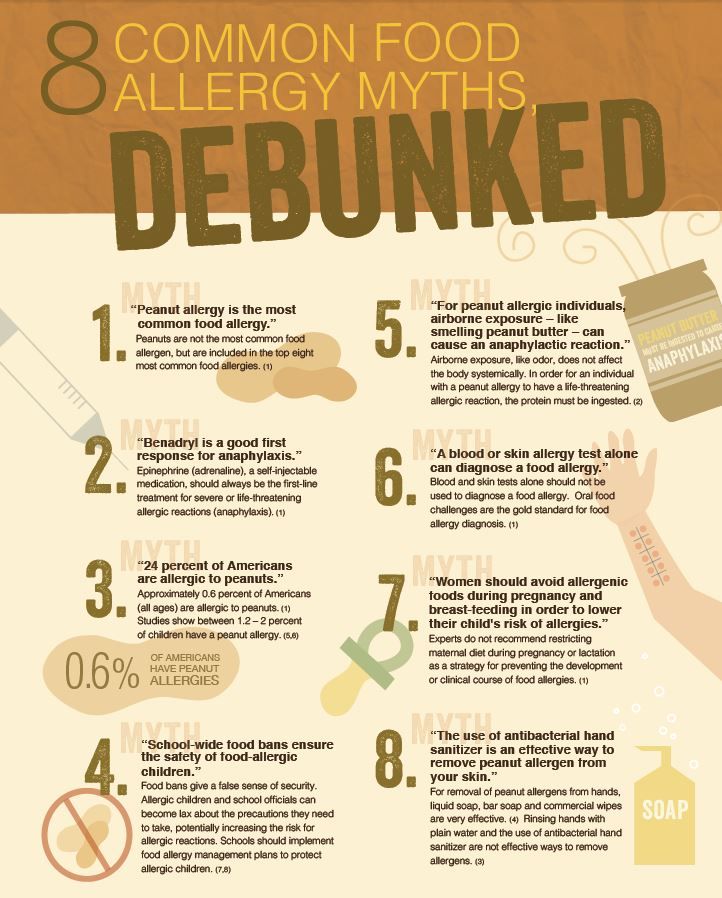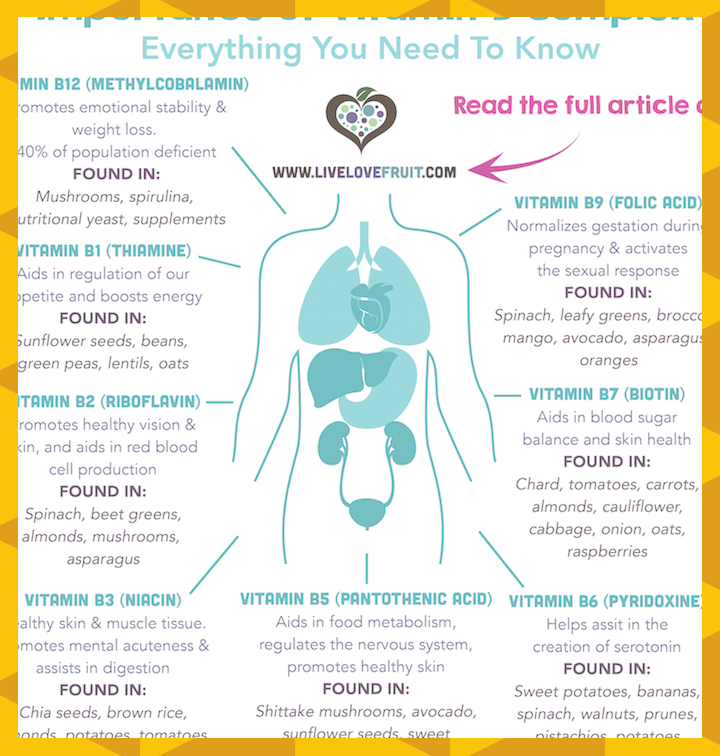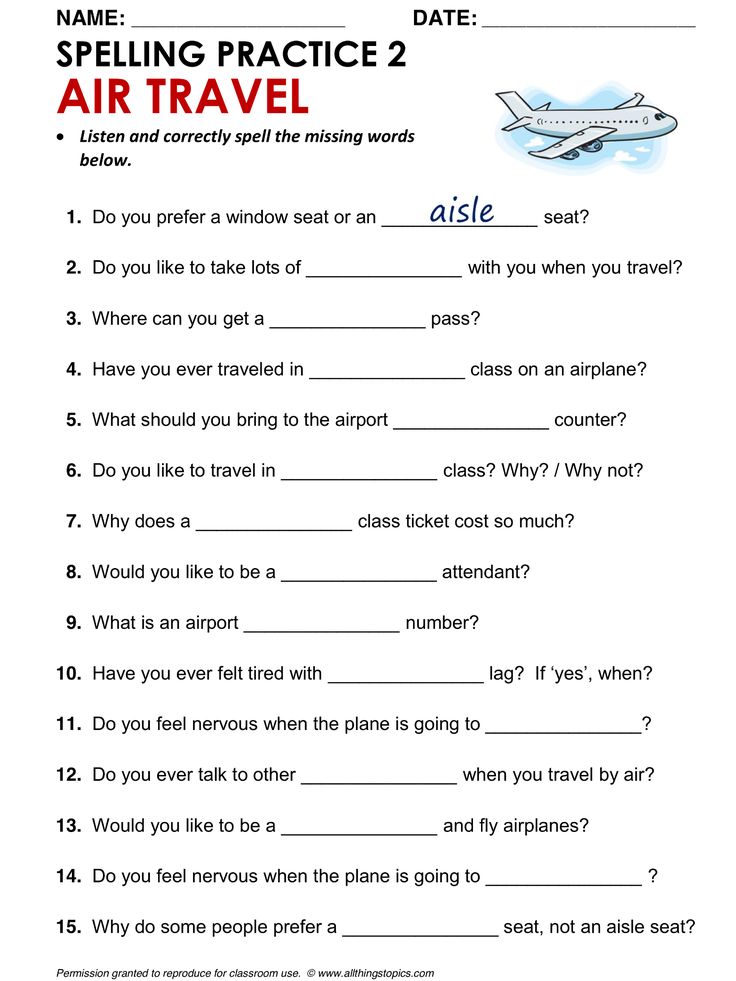Peanut butter during pregnancy
Peanut Butter During Pregnancy: Cravings, Safety, and More
Knowing what’s OK to eat during pregnancy can be among the first concerns you have after getting a positive pregnancy test. In my dietetics practice, I work closely with pregnant people who share their strong food cravings and aversions.
As a dietitian, I remember feeling guilty in my first trimester of pregnancy because I couldn’t stand the thought of vegetables. Needless to say, pregnancy can change your tastes in ways you might not expect.
It’s likely no surprise that following a well-balanced healthy eating pattern is crucial for the optimal health of both mom and baby. You might wonder whether peanut butter can fit into a healthy pregnancy diet.
Yes, peanut butter is safe to eat during pregnancy. In fact, the nutrient-packed food is highly nutritious and brings many health benefits.
Whether you’re on team creamy or team crunchy, you’re free to enjoy peanut butter in pregnancy if you don’t have a peanut allergy.
Keep reading to find out all you need to know about eating peanut butter in pregnancy, its nutritional content, health benefits, food safety risks, and what kind of peanut butter to eat.
Many factors play a role in why you might crave specific foods in pregnancy. One study including 2,022 mothers found that peanut butter was one of several salty food cravings (1).
Food cravings are independent of hunger and characterized by a strong desire for a food, beverage, or flavor. Pregnancy can lead to increased cravings. Cravings typically make their appearance toward the end of the first trimester (2, 3).
According to research, the most commonly craved foods in pregnancy are sweets, such as chocolate and desserts, and higher carb foods, which include pizza and chips (3).
Peanut butter falls outside those two categories, as it’s a plant-based spread made from ground peanuts. Sometimes oils, sugar, and salt are added to peanut butter.
The causes of a peanut butter craving may be due to hormonal or physical changes in pregnancy; however, more research is needed.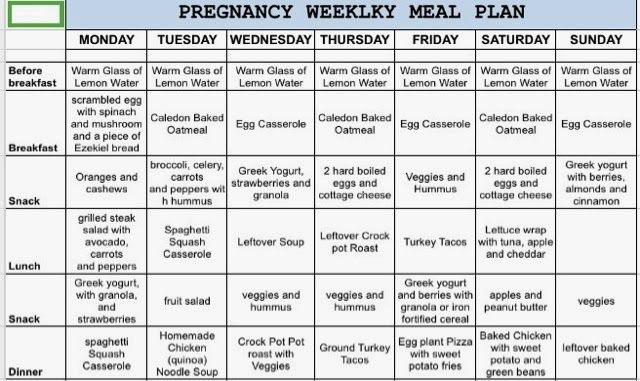 Fortunately, a peanut butter craving may be beneficial during pregnancy thanks to the food’s impressive nutritional profile. (4).
Fortunately, a peanut butter craving may be beneficial during pregnancy thanks to the food’s impressive nutritional profile. (4).
SummaryPregnancy cravings may be due to hormonal and physical changes and differ from hunger. A craving is a strong desire for a specific food, such as peanut butter.
Here’s the nutrition breakdown for 2 tablespoons (33 grams) of natural peanut butter (5):
- Calories: 190 calories
- Protein: 8 grams
- Fat: 16 grams
- Saturated fat: 3 grams
- Carbs: 7 grams
- Fiber: 3 grams
Peanut butter is relatively high in calories compared with other foods, as it delivers a hefty dose of healthy unsaturated fats. Peanut butter also contributes protein and fiber to your diet (5).
May help manage gestational diabetes
Though peanut butter is high in calories, it’s low in carbs.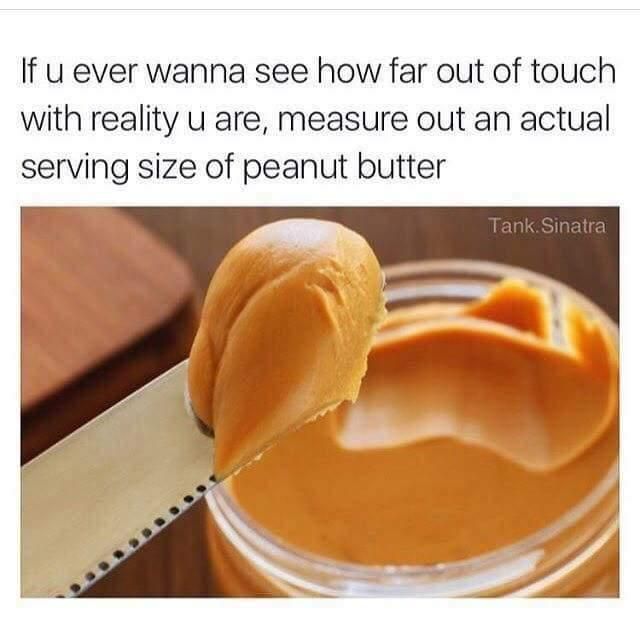 You may need to monitor your carb intake you have gestational diabetes, a condition affecting 2–10% of pregnancies annually (6).
You may need to monitor your carb intake you have gestational diabetes, a condition affecting 2–10% of pregnancies annually (6).
Gestational diabetes is characterized by abnormal blood sugar levels during pregnancy. Current recommendations are to eat moderate amounts of carbs throughout multiple meals and snacks daily (7, 8).
In addition, peanut butter has a low glycemic index. Low glycemic index foods have a more favorable effect on keeping blood sugar levels stable, compared with higher glycemic index foods (8).
Plant-based protein that supports a healthy pregnancy
Pregnancy is a time of rapid growth and development. The increased growth and development of the uterus, breasts, and baby calls for sufficient amounts of protein (9).
A 2-tablespoon (33-gram) serving of peanut butter has 8 grams of plant-based protein, which can help you meet your protein needs during pregnancy. Eating peanut butter in pregnancy can also help with feeling satisfied.
May lower heart disease risk
It’s easy to spot the pool of oil at the top of a jar of natural peanut butter.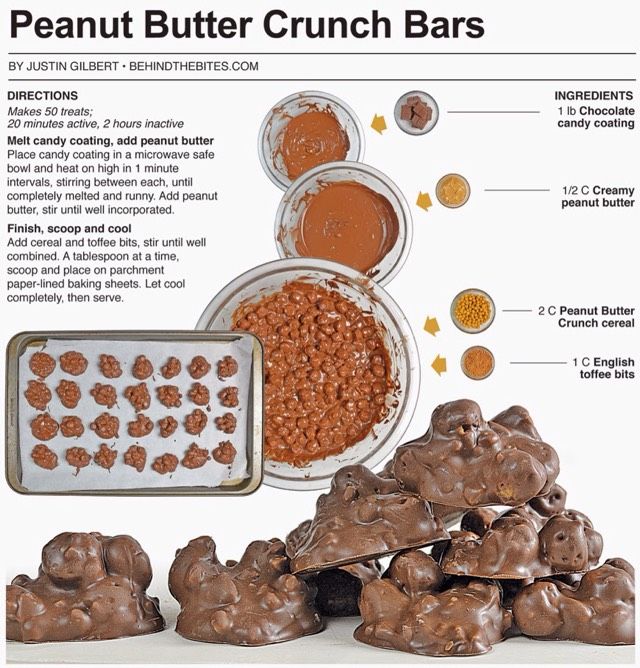 Indeed, peanut butter is a high fat food.
Indeed, peanut butter is a high fat food.
However, it’s rich in heart-healthy monounsaturated fats. Monounsaturated fats are touted for their role in reducing heart disease risk (10, 11).
May help with constipation
Given the significant number of hormonal changes that occur during pregnancy, pregnant people are at an increased risk of constipation.
The rise of a pregnancy hormone called progesterone may cause you to feel constipated by slowing down how quickly food moves through your intestines (12).
Constipation can be very uncomfortable, but there are ways to find relief. Fiber, a nutrient that’s naturally found in plant-based foods, promotes healthy digestion.
Including fiber-containing foods like peanut butter may help relieve or prevent constipation in pregnancy. A 2-tablespoon (33-gram) serving of peanut butter contains 3 grams of fiber (13, 5).
Be sure to drink plenty of water when you add more fiber to your diet and introduce it slowly.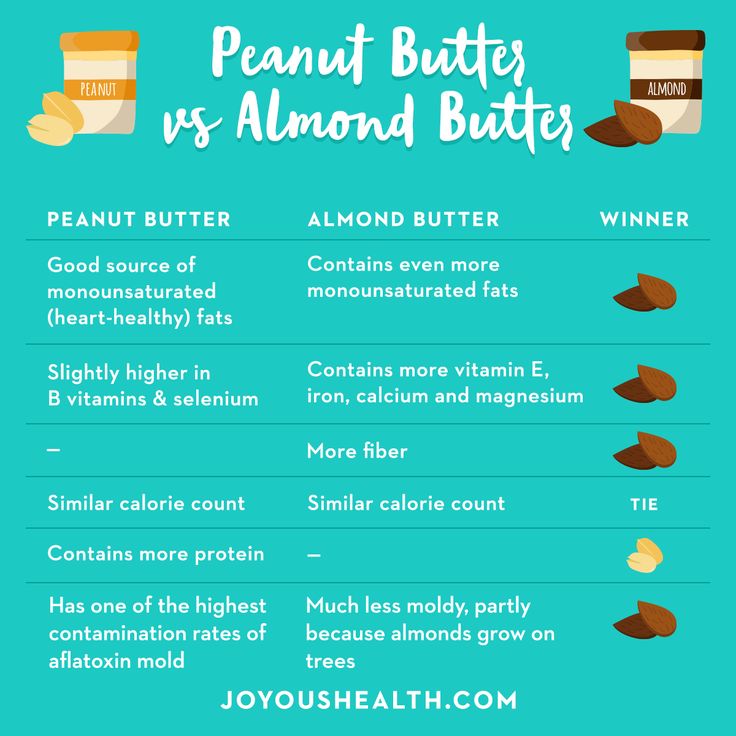
Boasts a host of antioxidants
Peanut butter boasts a wide variety of antioxidants, including resveratrol, flavonoids, and vitamin E. These compounds are known for their ability to help reduce the risk of diseases like heart disease and cancer (11).
Antioxidants work to maintain a healthy balance of disease-causing free radicals. Free radicals are byproducts of everyday bodily functions. Lacking or out-of-balance antioxidant levels can increase your risk of disease (14, 15).
SummaryPeanut butter has an impressive nutritional profile. Eating it during pregnancy may help manage gestational diabetes, boost your protein intake, and prevent and relieve constipation.
A national study followed 10,901 children and their mothers from pregnancy to adolescence. The study aimed to explore the relationship between maternal peanut and tree nut intake and the prevalence of peanut and tree nut allergy in their children.
Approximately 8,509 mothers ate peanuts or tree nuts five times or more per month and reported lower incidences of medically diagnosed food allergies in their children (16).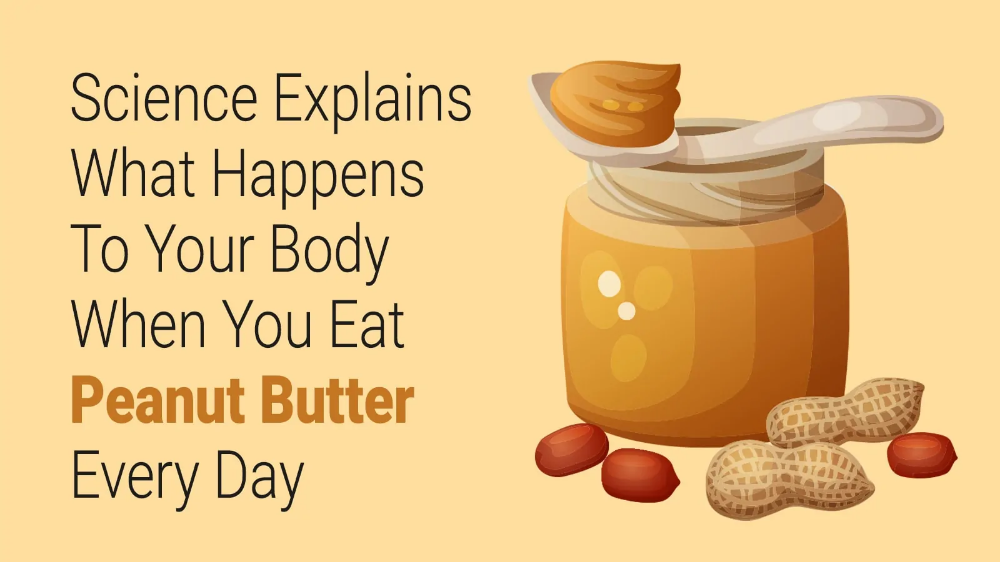
Another U.S. study following 1,277 mother-child pairs found a 47% reduced chance of having a peanut allergy among children of mothers who ate higher amounts of peanuts during their pregnancies (17).
SummaryLarge studies following mothers and their children over long periods have found associations between the consumption of peanuts during pregnancy and reduced peanut allergies among children.
Raw peanuts grow in the ground and carry a risk of contamination with a toxic agent called aflatoxin. Aspergillus is a type of fungus that produces aflatoxin. In the United States, the Food and Drug Administration (FDA) regulates aflatoxin levels in peanuts and peanut products.
Aflatoxin ingestion may cause significant health problems, such as liver cancer, impaired fetal development, pregnancy anemia, premature delivery, and pregnancy loss (18, 19).
Aflatoxins, along with other fungi found in peanut products, pose a greater risk in countries where food system practices aren’t well controlled (18, 19, 20).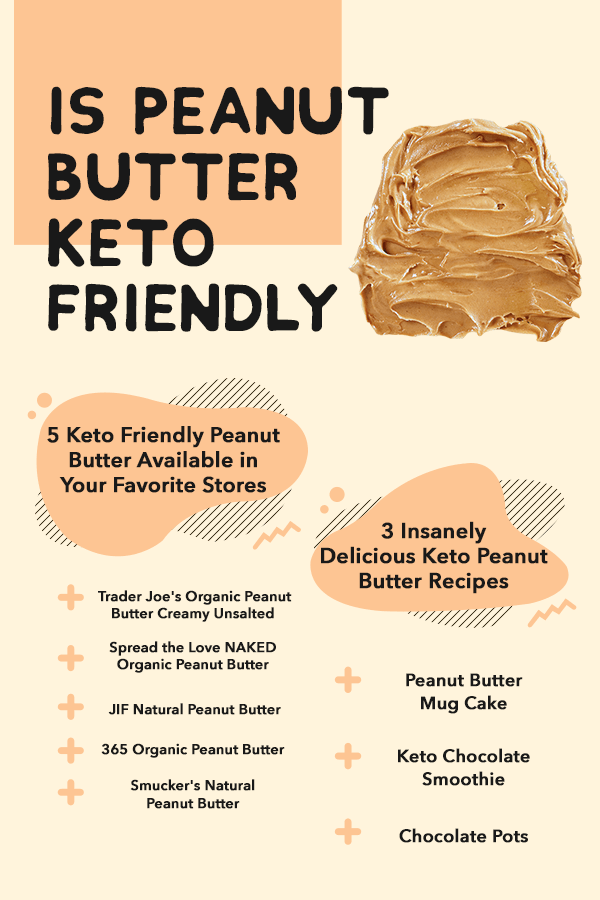
Choose commercial brands, as they’re subject to FDA regulation, and avoid unprocessed peanut butter, which is more likely to contain higher levels of aflatoxins. Also, you’ll want to avoid eating peanuts or peanut butter that appear discolored or moldy (21, 22).
SummaryPeanuts may be contaminated with a toxin called aflatoxin, which may cause poor pregnancy outcomes when ingested. It’s best to choose store-bought, FDA-regulated peanut butter and avoid unprocessed varieties.
Given the many peanut butter options available on store shelves today, it may feel challenging to decide on a jar. The healthiest peanut butter to eat during pregnancy — and in general — is natural peanut butter without additives.
Many peanut butters available at the store include added hydrogenated oils, salt, and added sugars. Hydrogenated oils contain trans fats, which have been linked to an increased risk of heart disease. Eating too much added sugar is also not great for your heart health (23, 24).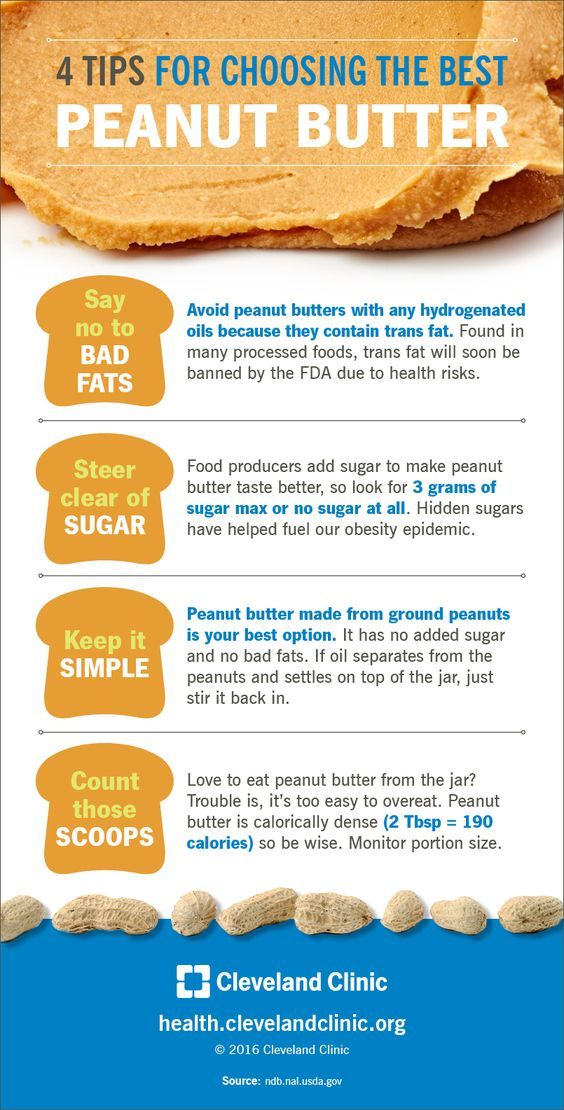
Check the ingredient list on your peanut butter — it should be concise and straightforward. Choose a jar of peanut butter that only contains peanuts or peanuts and salt. If there are ingredients other than peanuts and salt on the label, it’s best to skip that jar.
SummaryAvoid peanut butter jars with extra ingredients, such as hydrogenated oils and added sugars. Select natural peanut butter with simple ingredient lists. Peanuts or peanuts and salt should be the only ingredients.
If a pregnant person has a peanut allergy, peanut-containing products should be avoided.
If not, there’s no reason to avoid peanut butter in pregnancy. In fact, it can be a very healthy food to enjoy while pregnant.
Based on evidence, the American Academy of Allergy, Asthma, and Immunology has not recommended avoiding eating peanuts in pregnancy (25).
Peanut butter is a highly nutritious, protein-packed food that’s great for pregnant people without a peanut allergy.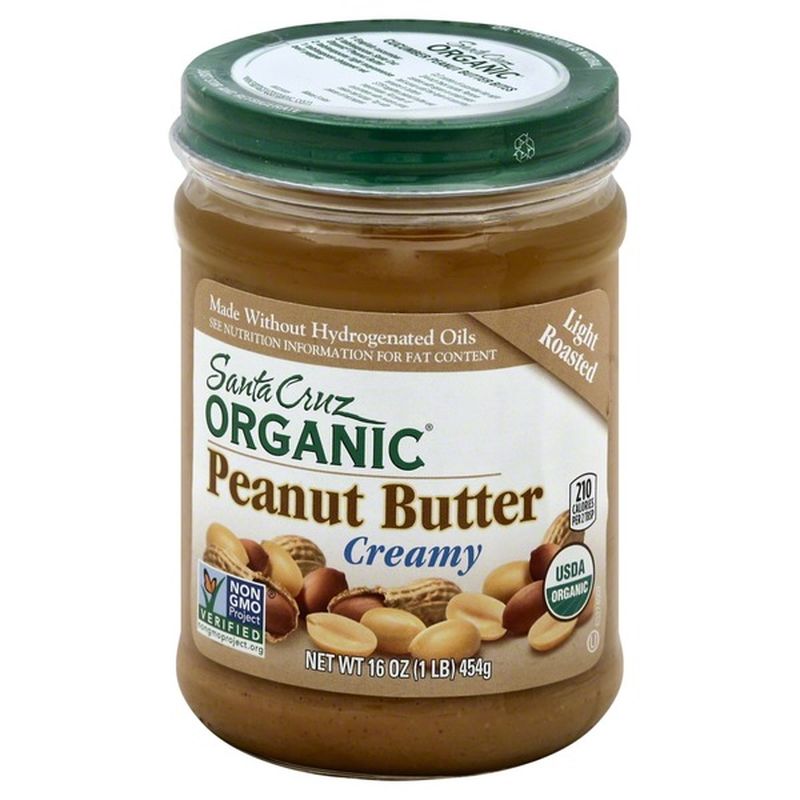
The popular spread is a low glycemic food, which may help you maintain healthy blood sugar levels. It also supplies protein — a key nutrient for pregnancy. Plus, its healthy fat may reduce your heart disease risk, and its digestion-supporting fiber helps relieve constipation.
Finally, peanut butter is rich in vitamins and antioxidants. As such, it can help prevent disease.
Eating peanut butter or peanuts during pregnancy may even reduce the risk of peanut allergies in children.
It’s safe to eat peanut butter in pregnancy as long as you choose an unprocessed peanut butter product. Enjoy commercial brands of peanut butter that are natural and free of additives.
Just one thing
Try this today: Enjoy natural peanut butter as part of your meals or snack. Here are some ideas:
- Spread peanut butter on a warm piece of lavash bread or whole grain toast.
- Use peanut butter as a dip for celery, pretzel sticks, or banana chips.
- Add a spoonful of peanut butter to your blueberry smoothie.

- Make a peanut butter Thai sauce to add to your veggie and pasta dish.
Is it Safe? Cary OBGYN
Topic: Eating Peanut Butter During Pregnancy: Is it Safe?
There has been some concern about what pregnant mothers should or should not eat, including peanut butter. Pregnancy is a time where taste changes in a myriad of ways, and things that did not use to sound good may suddenly become a craving. Here, we will examine the common question that many expectant mothers wish to know: “Is it safe for me to eat peanut butter during my pregnancy?”
The Surprising Health Benefits of Peanut Butter
It can be difficult for expectant mothers to keep up with the dos and don’ts while coping with cravings during their pregnancy. While taste does change quite a bit, it is still important to indulge in a diet that is well-balanced. Luckily, it is safe for pregnant women to consume peanut butter, and it even has some surprising health benefits.
While everyone has different cravings, one key study involving 2,022 expectant mothers noted that peanut butter was a common craving. The reason for this particular craving may be physical or hormonal changes taking place in the body. However, it is safe, and even healthy, for pregnant women to consume peanut butter.
The reason for this particular craving may be physical or hormonal changes taking place in the body. However, it is safe, and even healthy, for pregnant women to consume peanut butter.
Peanut butter has many nutrients the body needs to function, including a large amount of healthy, unsaturated fats. It also contains protein and fiber. Although peanut butter has many calories, it is also relatively low in carbs. If you have gestational diabetes, you may need to carefully measure your carb intake, which makes peanut butter a prime choice.
Furthermore, peanut butter has plant-based protein and a low glycemic index. Protein is especially needed for the growth and development that accompanies pregnancies, making peanut butter a good (and satisfying) option. In addition, peanut butter contains large amounts of heart-healthy monounsaturated fats, which have also been linked to a reduction in the risk of developing heart disease. For these reasons, peanut butter remains a safe and healthy choice for pregnant women, as long as they do not have a peanut allergy.
Key Takeaway
One of the most stressful things an expectant mother must figure out is what the dos and don’ts are of her new diet. Many cravings arise, and it is important to eat a well-balanced diet so that the baby has everything they need. While some women have wondered if peanut butter is a safe option for pregnant women, it has not only proven safe, but healthy, for pregnant women who do not have any peanut allergies.
Topic Discussed: Eating Peanut Butter During Pregnancy: Is it Safe?
Read More
Services We Offer:
Website Navigation:
Home | About | OB Videos | Insurances Accepted | Blog | Providers | Michael Anthony, MD, FACOG | Noemi Maydew, MD, FACOG | Anne Bond Bonpain, MD, FACOG | Elita Wyckoff, MD, FACOG | Gilberto Rodrigo, MD, FACOG | Jennifer Fraley, MD, FACOG | Heather Flowers | Courtney Braswell | Services | Patient Care | Advanced Care Team | Testimonials | Contact Us | Patient Portal
Peanut butter for pregnancy: good or bad
June 12 2020
One of the reasons why peanut butter has been categorized not just as a nutrient but as a health food is because of its rich and even unique composition. Therefore, the question of whether peanut butter is possible during pregnancy is natural, because this period in a woman’s life is responsible, and the task is to saturate the body with useful micro-, macroelements and vitamins. In today's material - an exhaustive answer for expectant mothers! nine0003
Therefore, the question of whether peanut butter is possible during pregnancy is natural, because this period in a woman’s life is responsible, and the task is to saturate the body with useful micro-, macroelements and vitamins. In today's material - an exhaustive answer for expectant mothers! nine0003
Buy peanut oil 200 ml
6 unique peanut capabilities of peanut oil: Assistance to the body during pregnancy
1. Helps reduce the risk of nerve pipes (NTDS) 9000 9000 Pregnant woman should receive at least 400 mcg folic acid daily. Studies have shown that those who consume adequate amounts of folic acid are 70% less likely to give birth to a child with a neural tube defect. Peanuts are an excellent source of folic acid and can potentially help protect against any negative conditions: aging placenta, polyhydramnios, etc. nine0003 2 . Studies have been conducted that confirm that peanut butter during pregnancy on a regular basis reduces any risks associated with inflammation of the gallbladder by 25%. 3. Helps lower cholesterol Peanuts are an excellent source of copper. This is a substance that reduces the level of "bad" cholesterol, while raising the level of "useful". 4. Improves memory and controls cognitive functions Peanuts are rich in vitamin B3, or niacin, which has a positive effect on memory function. That is why peanut butter is often referred to as "brain food". Vitamin B3 can also contribute to the normal functioning of cerebral vessels by providing oxygen to the cells. nine0003 5. Reduced risk of cardiovascular disease, increased energy and antidepressant effect Peanuts are loaded with antioxidants and healthy fats that may protect against heart disease. Vitamin B2, or riboflavin, protects and strengthens the walls of blood vessels. In addition, the rest of the B vitamins, iron and magnesium contribute to the antidepressant effect and positively affect the energy potential and the establishment of the wake-sleep cycle. 6. Weight Management Peanuts are high in calories, but contain healthy fats that regulate hormonal balance (estrogen/progesterone) in the female body. And in moderation, it promotes weight loss. Not only for pregnant women, but also at the stage of planning the birth of a baby, this product will be an excellent vitamin and mineral help in eliminating deficiencies. Interesting: peanuts contain beta-sitosterol, which is a type of phytosterol that is one of the most important trace elements that prevent the formation of cancerous tumors. nine0015 Buy Peanut Butter 500 ml The general recommendation is no more than 10-15 grams of product per day. It can be taken both in its pure form, washed down with water, and by adding oil to food (important - without heat treatment). During pregnancy, the diet of expectant mothers is varied. Therefore, peanut butter can be added to freshly squeezed juices, smoothies, and vegetable salads. Also add to warm porridge. nine0003 Another important point . If you are thinking about whether peanut butter can be used by pregnant women, having some individual health problems, or you have an individual intolerance to the product, we recommend that you consult with your doctor before using it. Like all legumes, peanuts are quite an allergenic product, so it should be introduced into the diet carefully, it is better to test for histamine. Also, individual intolerance, arthrosis and arthritis in the acute phase can become contraindications. nine0003 Can a breastfeeding mother eat peanut butter? Yes, however, here one should adhere to the rule of reason and the individual reaction of the organism. Buy Peanut Butter 1L Share Share Share Share New comment Login with Submit Knowing what to eat during pregnancy may be one of the first problems you have after getting a positive pregnancy test result. In my dietetics practice, I work closely with pregnant women who share their strong food cravings and aversions. As a nutritionist, I remember feeling guilty during the first trimester of my pregnancy because I couldn't stand the thought of vegetables. Needless to say, pregnancy can change your tastes in ways you don't expect. nine0003 Perhaps unsurprisingly, eating a well-balanced, healthy diet is critical to optimal health for both mother and baby. Yes, peanut butter is safe to eat during pregnancy. In fact, nutrient-dense foods are highly nutritious and provide many health benefits. Whether you like cream cheese or crunchy cheese, you can enjoy peanut butter during pregnancy as long as you don't have a peanut allergy. nine0003 Continue reading to find out everything you need to know about eating peanut butter during pregnancy, its nutritional value, health benefits, food safety risks, and what kind of peanut butter to eat. Many factors play a role in why you may crave certain foods during pregnancy. One study of 2,022 mothers found that peanut butter was one of several cravings for salty foods.1). nine0003 Eating addiction is independent of hunger and is characterized by a strong desire to eat, drink or flavor. Pregnancy can lead to increased cravings. Cravings usually appear towards the end of the first trimester (2, 3). According to research, the most desirable foods during pregnancy are sweets such as chocolate and desserts, as well as foods high in carbohydrates such as pizza and chips.3). Peanut butter is not included in these two categories as it is a vegetable paste made from ground peanuts. Oils, sugar, and salt are sometimes added to peanut butter. nine0003 Reasons for cravings for peanut butter may be related to hormonal or physical changes during pregnancy; however, more research is needed. Luckily, peanut butter cravings can be beneficial during pregnancy due to the product's impressive nutritional profile. (4). Conclusion Food cravings during pregnancy may be related to hormonal and physical changes and are distinct from hunger. A craving is a strong desire for a certain food, such as peanut butter. nine0003 Here is the food of the food value of 2 tablespoons (33 grams) of natural arachy oil (5): 
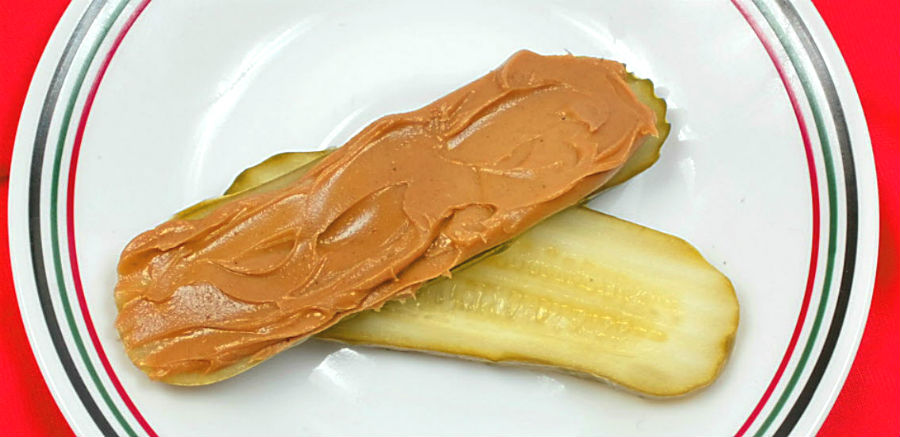 This is what makes taking peanut butter beneficial for breastfeeding, and not just during pregnancy. nine0003
This is what makes taking peanut butter beneficial for breastfeeding, and not just during pregnancy. nine0003 How to Eat Peanut Butter
 Then all the benefits of the oil will be preserved and enrich your body.
Then all the benefits of the oil will be preserved and enrich your body. Contraindications
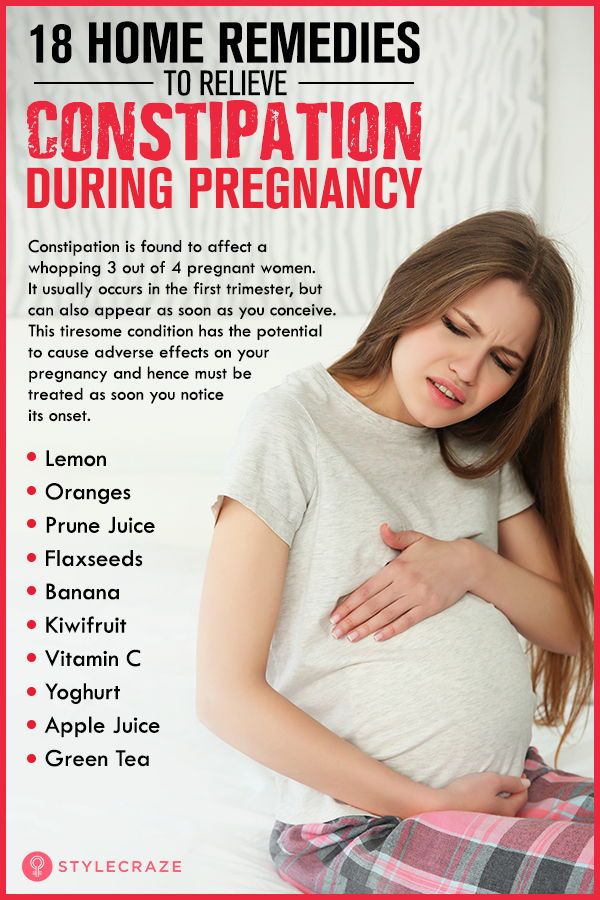 How to apply peanut butter? We recommend - no more than 1-2 tsp. per day, including as a dressing for food (salads and cereals).
How to apply peanut butter? We recommend - no more than 1-2 tsp. per day, including as a dressing for food (salads and cereals). Is it safe to eat peanut butter during pregnancy?
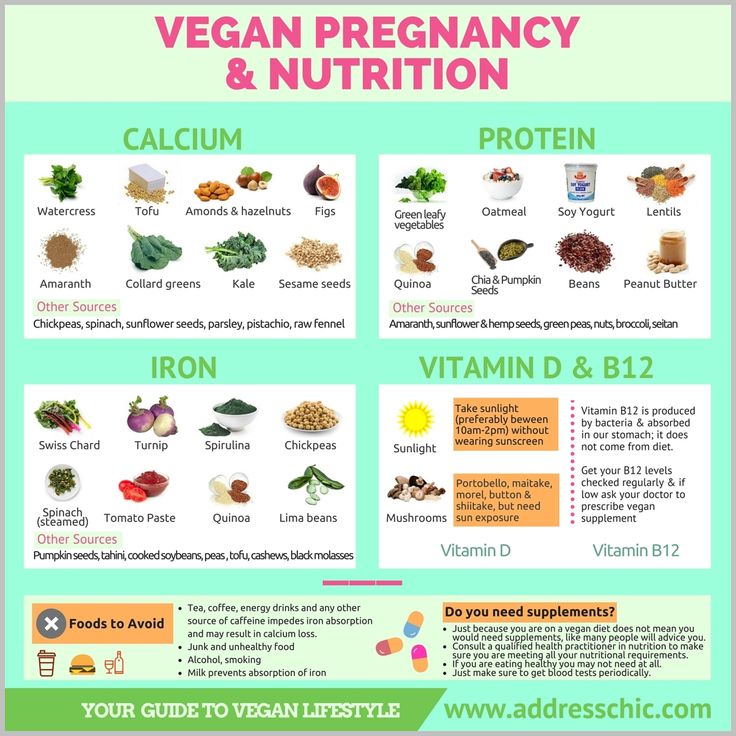 You may wonder if peanut butter can fit into a healthy pregnancy diet.
You may wonder if peanut butter can fit into a healthy pregnancy diet. Pregnancy cravings and peanut butter

Arachis oil richly nutrients
16 grams
Arachical oil contains relatively many calories compared to other products, as it contains a large dose fats. Peanut butter also contains protein and fiber in your diet (5). nine0003
Peanut butter also contains protein and fiber in your diet (5). nine0003
Health benefits of peanut butter
May help manage gestational diabetes
Although peanut butter is high in calories, it is low in carbohydrates. You may need to watch your carbohydrate intake. You have gestational diabetes, a condition that affects 2–10% of pregnancies each year (6).
Gestational diabetes is characterized by abnormal blood sugar levels during pregnancy. The current recommendation is to eat moderate amounts of carbs at multiple meals and snacks per day (7, 8). nine0003
In addition, peanut butter has a low glycemic index. Foods with a low glycemic index have a more beneficial effect on maintaining stable blood sugar levels compared to foods with a higher glycemic index.8).
Plant-Based Protein to Support a Healthy Pregnancy
Pregnancy is a time of rapid growth and development. Increasing the growth and development of the uterus, breast, and baby requires adequate protein (9).
2 tablespoons (33 grams) of peanut butter contains 8 grams of plant-based protein, which can help you meet your protein needs during pregnancy. Eating peanut butter during pregnancy can also help you feel full.
May reduce the risk of heart disease
It's easy to see a puddle of oil on top of a can of natural peanut butter. Indeed, peanut butter is a high-fat food.
However, it is rich in heart-healthy monounsaturated fats. Monounsaturated fats are touted for their role in reducing the risk of heart disease (10, 11).
May help with constipation
Given the significant amount of hormonal changes that occur during pregnancy, pregnant women are at an increased risk of constipation.
An increase in the level of a pregnancy hormone called progesterone can make you constipated by slowing down the speed of food moving through your intestines.12). nine0003
Constipation can be very uncomfortable, but there are ways to find relief. Fiber, a nutrient naturally found in plant foods, promotes healthy digestion.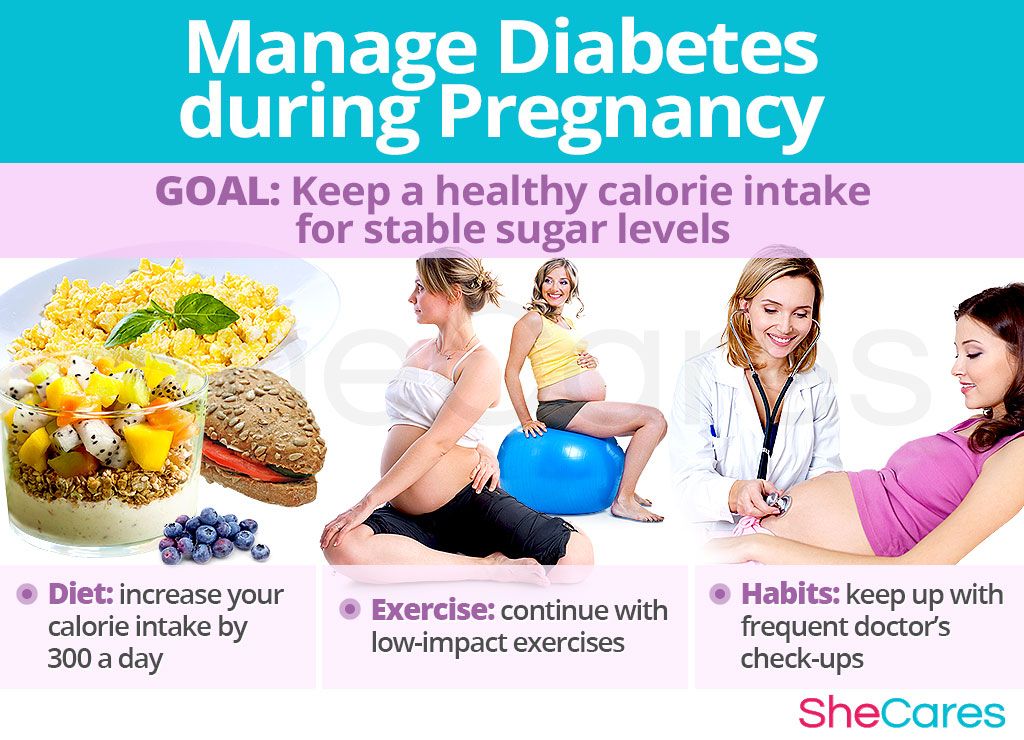
Including fiber-rich foods such as peanut butter may help relieve or prevent constipation during pregnancy. A 2-tablespoon (33-gram) serving of peanut butter contains 3 grams of fiber (13, 5).
Be sure to drink plenty of water when adding more fiber to your diet and introduce it slowly. nine0003
Contains many antioxidants
Peanut butter boasts a wide range of antioxidants, including resveratrol, flavonoids and vitamin E. These compounds are known to reduce the risk of diseases such as heart disease and cancer.11).
Antioxidants maintain a healthy balance of disease-causing free radicals. Free radicals are by-products of daily bodily functions. A lack or imbalance in antioxidant levels can increase the risk of disease (14, 15). nine0003
Summary
Peanut butter has an impressive nutritional profile. Eating it during pregnancy can help manage gestational diabetes, increase protein intake, and prevent and relieve constipation.
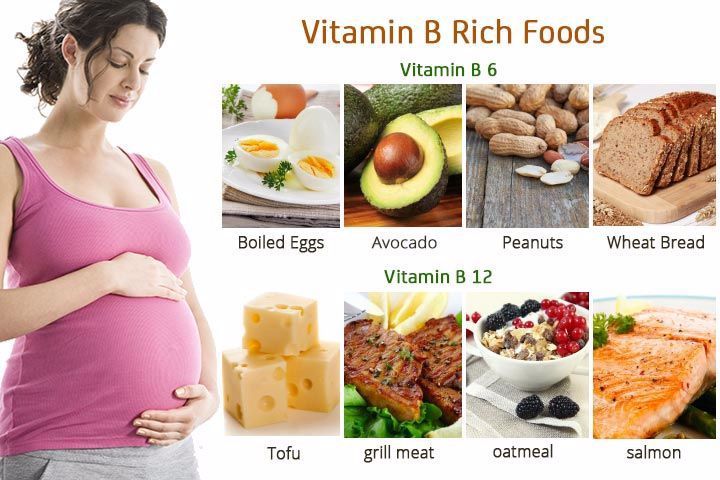
Peanut Butter in Pregnancy and Peanut Allergy Risk
A national study followed 10,901 babies and their mothers from pregnancy to adolescence. The study aimed to investigate the relationship between maternal consumption of peanuts and tree nuts and the prevalence of peanut and tree nut allergies in their children. nine0003
Approximately 8,509 mothers ate peanuts or tree nuts five or more times a month and reported a reduction in the frequency of medically diagnosed food allergies in their children.16).
Another US study of 1,277 mother-child couples found that the likelihood of peanut allergy was reduced by 47% among children of mothers who ate more peanuts during pregnancy.17).
Conclusion
Large long-term studies of mothers and their children have found an association between peanut consumption during pregnancy and a reduction in peanut allergy among children. nine0003
Risks of eating peanut butter during pregnancy
Raw peanuts grow in the ground and carry the risk of being contaminated by a poisonous substance called aflatoxin. Aspergillus is a type of fungus that produces aflatoxin. In the United States, the Food and Drug Administration (FDA) regulates the levels of aflatoxin in peanuts and peanut products.
Aspergillus is a type of fungus that produces aflatoxin. In the United States, the Food and Drug Administration (FDA) regulates the levels of aflatoxin in peanuts and peanut products.
Ingestion of aflatoxin can cause serious health problems such as liver cancer, impaired fetal development, anemia in pregnancy, preterm birth and miscarriage.18, 19).
Aflatoxins, along with other fungi found in peanut products, pose a greater risk in countries where the food system is not properly controlled.18, 19, 20).
Choose commercial brands as they are subject to FDA regulations and avoid unprocessed peanut butter which is more likely to contain higher levels of aflatoxins. In addition, you should avoid eating peanuts or peanut butter that appear discolored or moldy (21, 22). nine0003
Conclusion
Peanuts can be contaminated with a toxin called aflatoxin, which can lead to poor pregnancy outcomes when ingested. It's best to choose store-bought, FDA-regulated peanut butter and avoid unprocessed varieties.

Best Peanut Butter for Pregnancy
With so many peanut butter options available on store shelves today, choosing a jar can be overwhelming. The healthiest peanut butter you can eat during pregnancy — and in general — is natural peanut butter without additives. nine0003
Many commercially available peanut butters contain added hydrogenated oils, salt, and added sugars. Hydrogenated oils contain trans fats, which have been linked to an increased risk of heart disease. Eating too much added sugar is also bad for heart health (23, 24).
Check the ingredient list on peanut butter - it should be short and to the point. Choose a peanut butter jar that contains only peanuts or peanuts and salt. If the label says ingredients other than peanuts and salt, it's best not to use that jar. nine0003
Conclusion
Avoid jars of peanut butter with extra ingredients such as hydrogenated oils and added sugars. Choose natural peanut butter with simple ingredient lists.
Peanuts or peanuts and salt should be the only ingredients.
Recommendation
If a pregnant woman is allergic to peanuts, products containing peanuts should be avoided.
If not, there is no reason to avoid peanut butter during pregnancy. In fact, it can be a very healthy food during pregnancy. nine0003
Based on data, the American Academy of Allergy, Asthma and Immunology does not recommend avoiding peanuts during pregnancy.25).
Bottom line
Peanut butter is a highly nutritious, protein-rich product that is great for pregnant women without peanut allergies.
Popular Spread is a low glycemic food that can help you maintain healthy blood sugar levels. It also supplies protein, a key nutrient for pregnancy. In addition, its healthy fats may reduce the risk of heart disease, while the digestive fiber helps relieve constipation. nine0003
Finally, peanut butter is rich in vitamins and antioxidants. Thus, it can help prevent the disease.